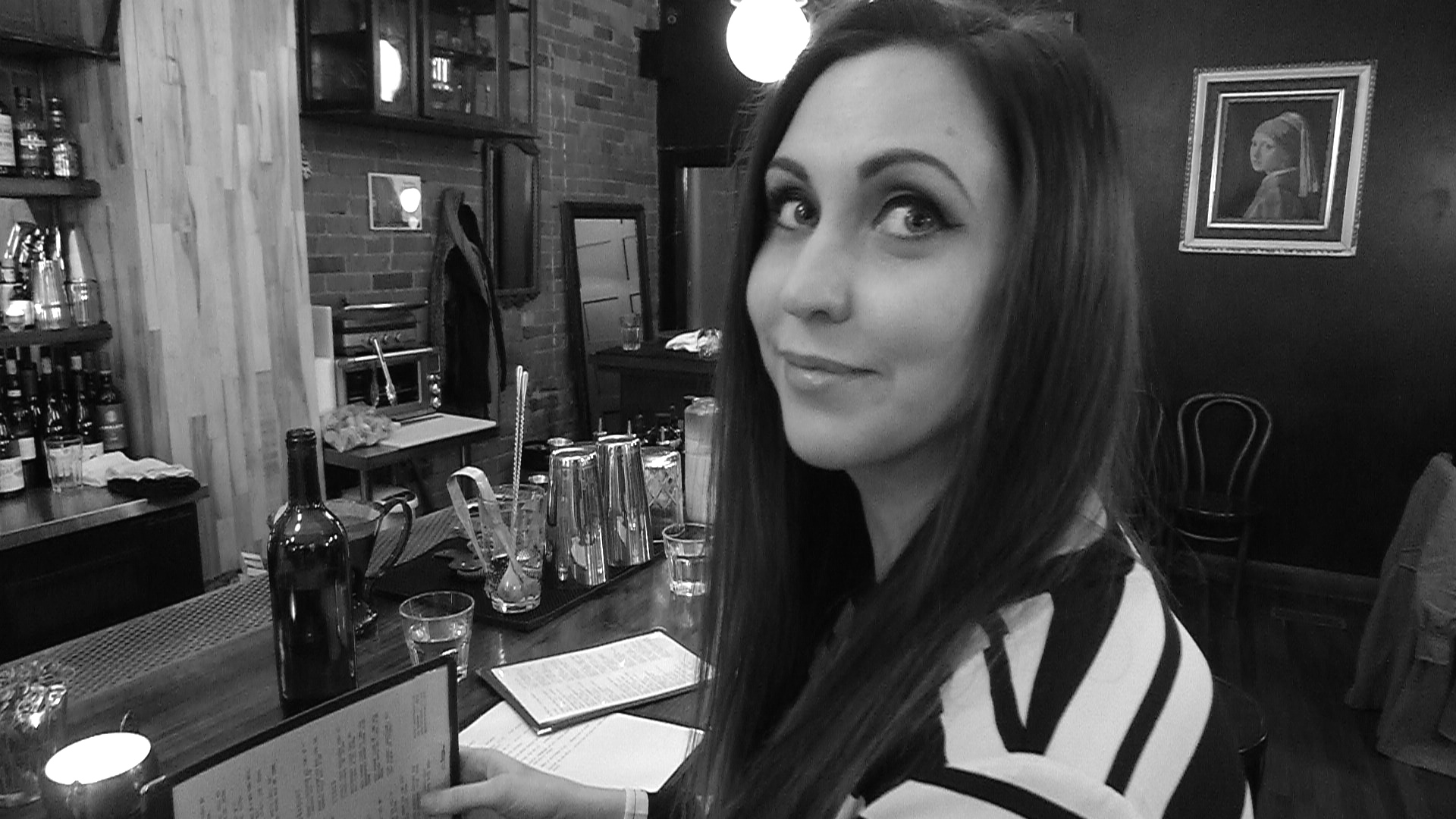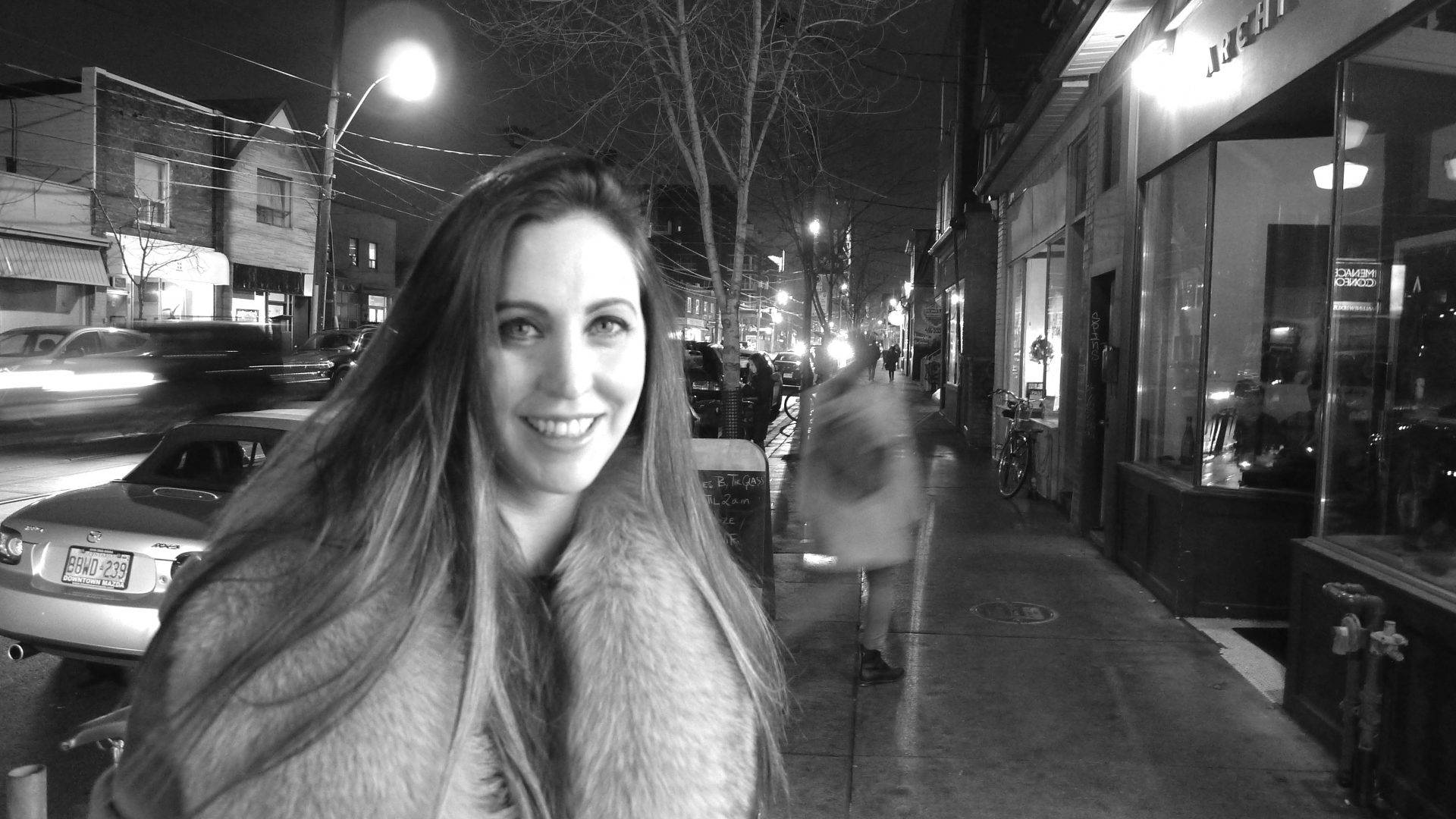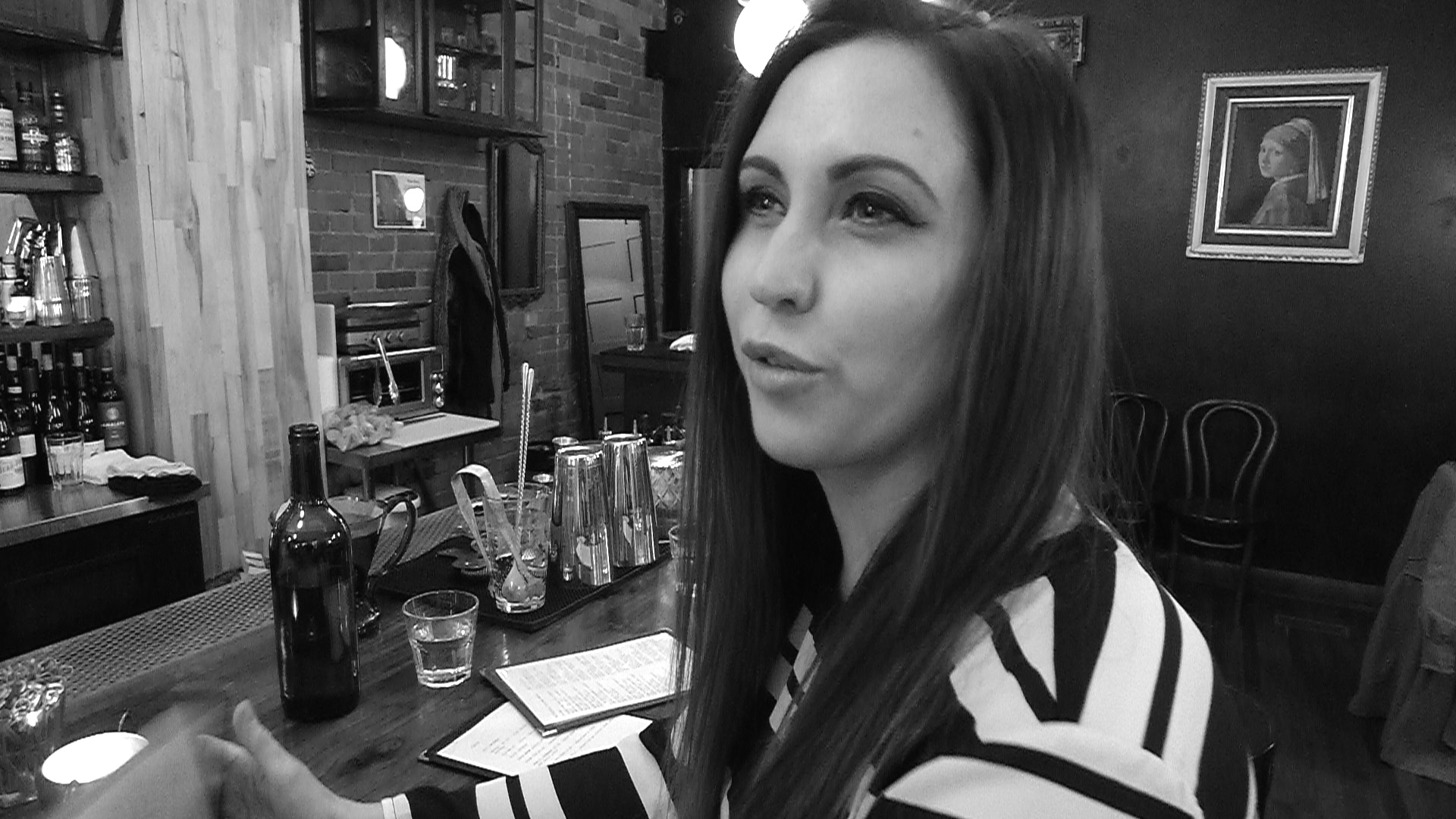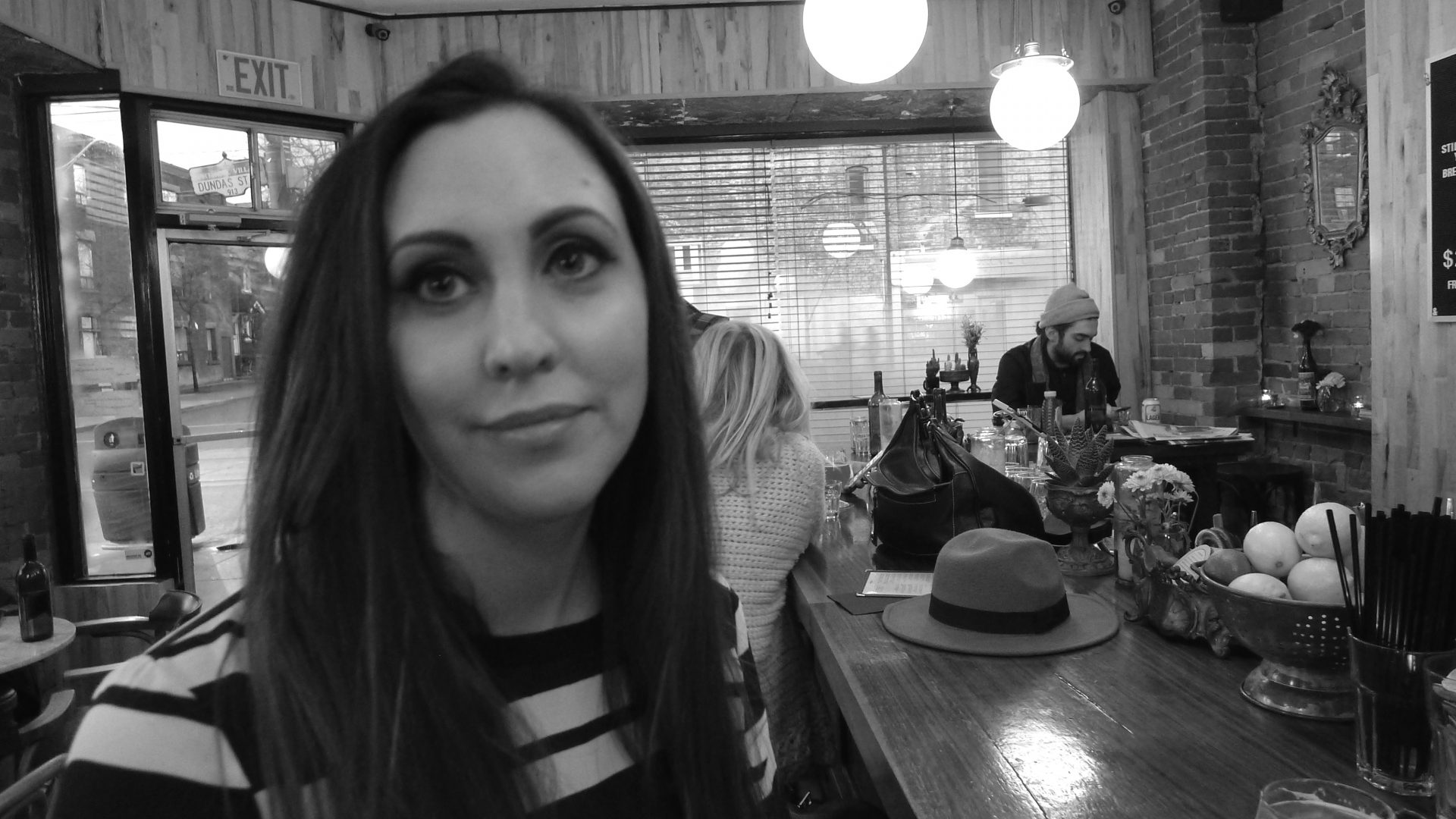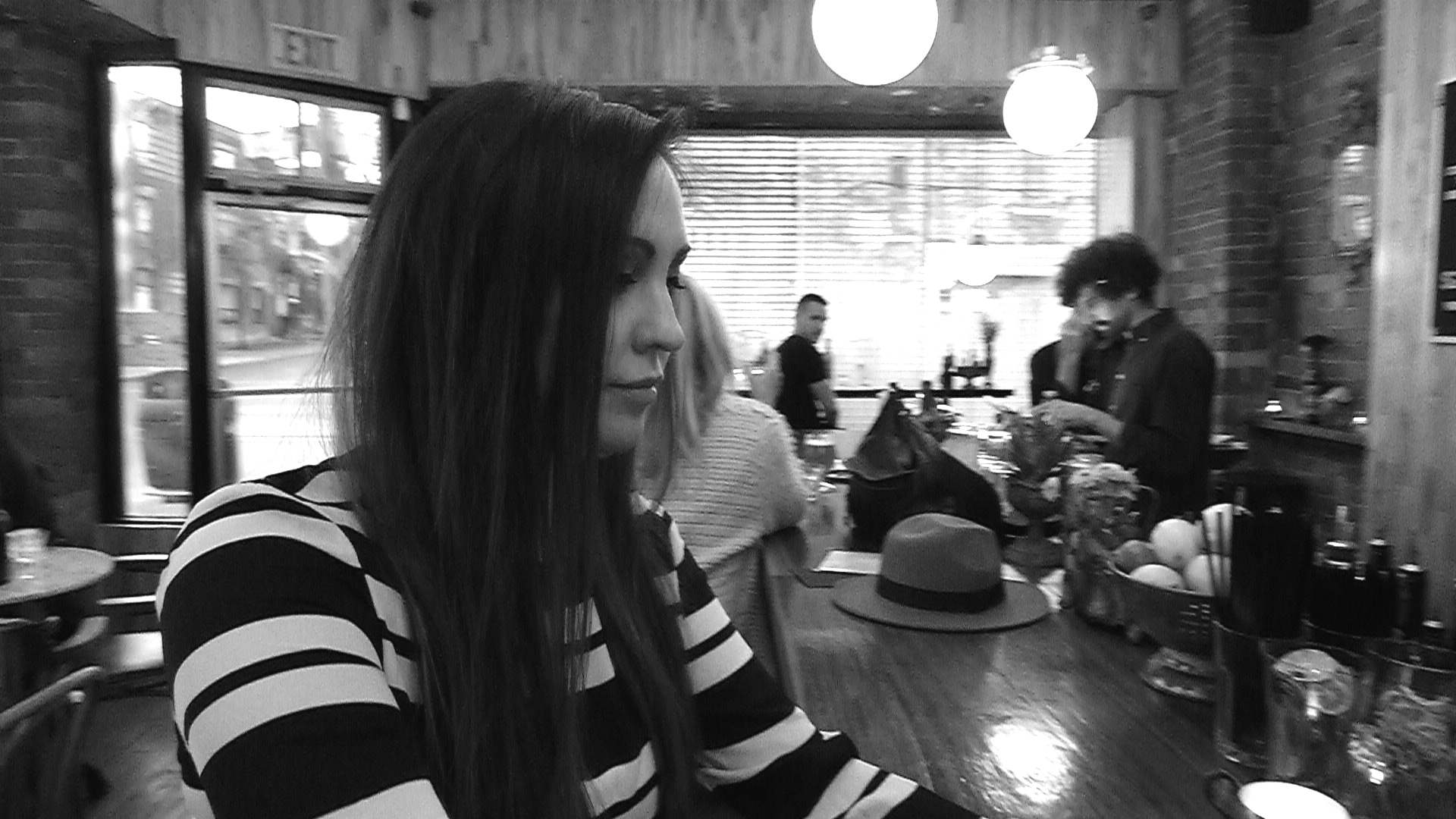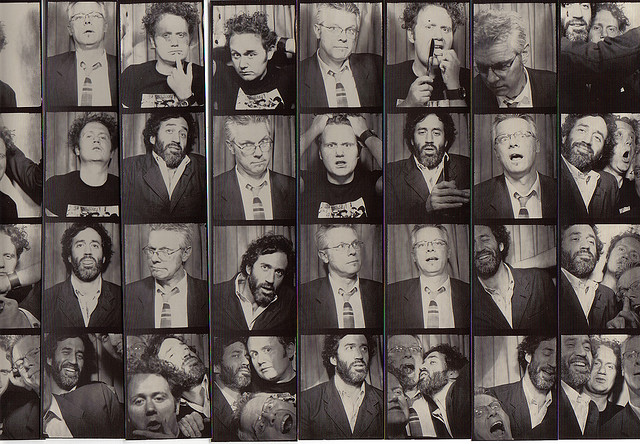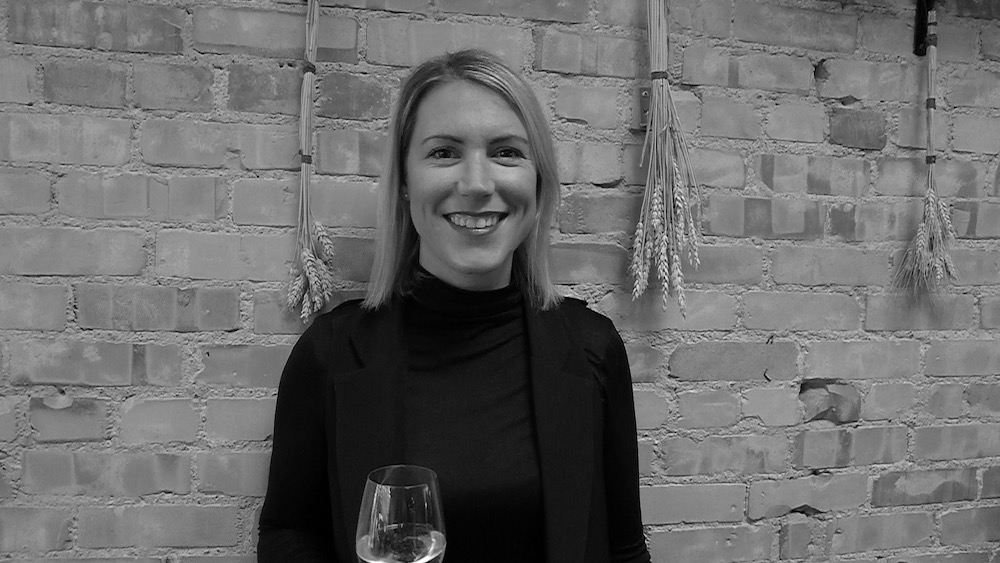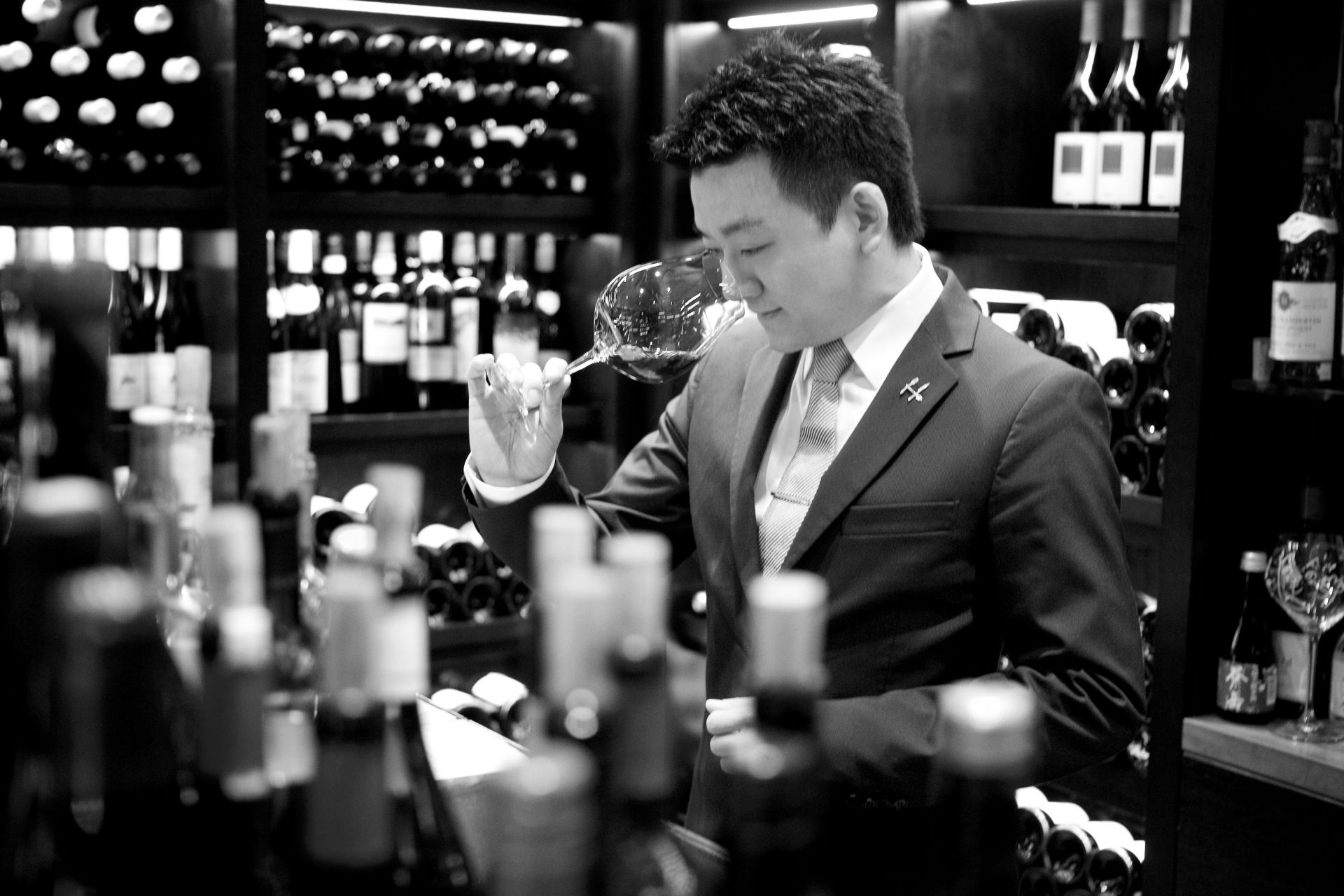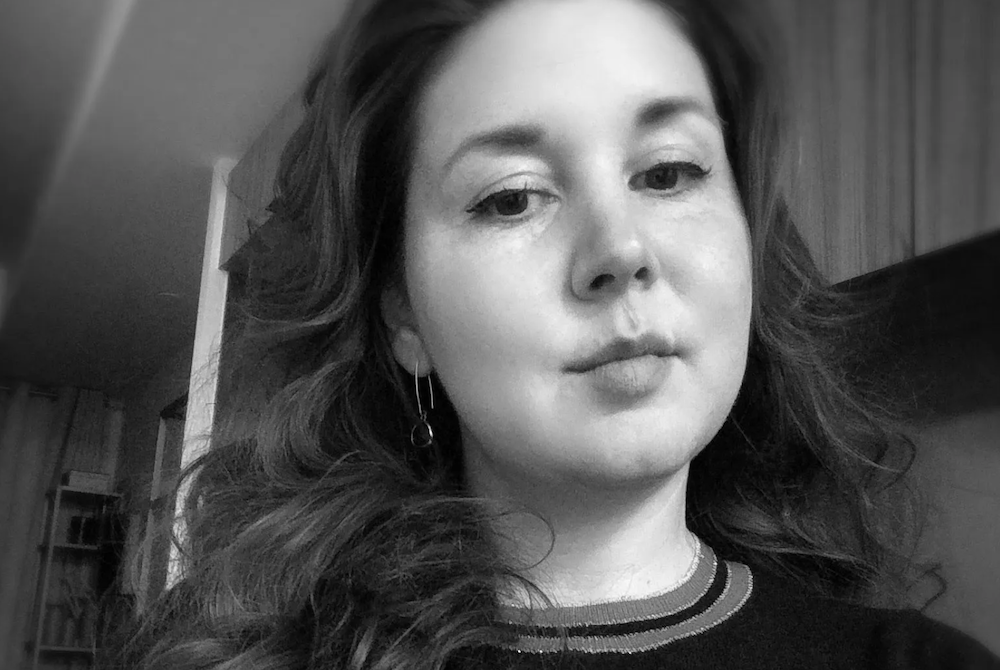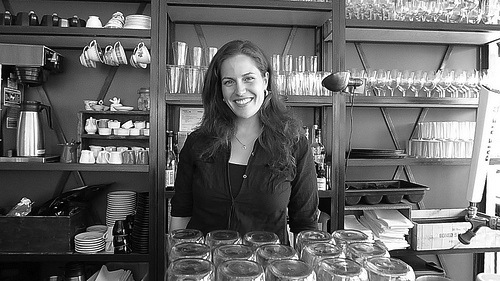In the second of an twelfth (and wildly popular) series, we interview some of the most talented up-and-coming Sommeliers in Ontario (and occasionally elsewhere). A few years back I was flicking through the pages of a locally published periodical and noticed that when it came to Sommeliers it was the same names that seemed to pop up over and over again. I was also becoming gradually cognisant of the fact that we more established wine folks were well and truly “losing our edge” to these young blood Sommeliers. Being well aware of the depth of new talent that was out there I finally decided to get together with a couple of fellow Toronto Sommelier “Old Guard” (Anton Potvin and Peter Boyd) to assemble a line of questioning that would give us an entertaining insight into the minds of these rising stars.
This week we sit down for some banter with the very smart cookie that is Emily Pearce-Bibona.
Good Food Revolution: So Emily, what is it that you are doing these days?
Emily Pearce-Bibona: I suppose you could say I am a jack of many trades. I Somm a bit, write a bit, consult a bit, study more than a bit, and work for an agency.
GFR: And what kind of experience and training did you have before doing what you do today?
EB: I used to be a bureaucrat for the Ontario Government. I went to school for Political Science, and it was a good job. While I was there I started taking WSET classes and moonlighting at Terroni. It became a bit of an obsession and one day I had to cross the Rubicon and I decided to make wine my full time endeavor.
GFR: How would you describe your perfect wine program?
EB: I don’t think there is one “right” program, or one that fit’s all. However, most importantly I believe a good program must be designed for the guest, and not the Sommelier, as well as provide solid revenue for the establishment. Wine can be a very esoteric and romantic field, but ultimately it has to fit into a business plan and add to the bottom line.
GFR: Tell us a little more about your writing for Decanter… that’s pretty sweet, non?
EB: I do enjoy the pieces that I contribute, and I feel lucky to be able to do so. I am writing a couple pieces now on concrete eggs and steep slope viticulture, that I am excited about.
To be honest, when I first started in the wine game I decided I wanted to try my hand at writing. I started cold-calling and emailing websites and different publications. Decanter responded, and less than 3 weeks after I set that goal, they had published a piece. I wish other goals could be reached so quickly!! I started writing on Canadian Icewine, and found myself pigeon-holed into that topic. I am not saying that Icewine isn’t a great topic, however it is rather limiting in the world of wines. I hope to expand beyond just Canadian content for this reason.
GFR: And how do you find the consultation gig?
EB: I enjoy consulting quite a bit. I just finished a dinner for McMaster University and it was great. I was able to go back to my alma matter and speak to alumni and Professors about wines that I am really passionate about. Consulting has given me the opportunity to experience these unique events, and I look forward to doing more with not just organizations, but also individuals whom I work with on their personal collections and events.
GFR: When managing a list, how do you select who to work with?
EB: I have a few agents that I know I can rely on to deliver not only great wines but also reliable service. I stick to those people and occasionally branch out for certain wines that interest me.
GFR: Now, how do I word this? Have you drunk the Natural Wine Kool Aid? I’m just kidding, how do you feel about the scene?
EB: I’m over it. I am much more interested in good wine, than natural wine. What I mean by that is I am interested in the balance, complexity, and overall quality of a wine. There are lots of great natural wines out there, and there are a lot of really bad ones as well. Natural wines can be ripe with bacterial faults and sometimes age terribly.
Further, there are many fantastic conventionally produced wines in the market. I think natural wine is an interesting point to add to a conversation about a wine, but in no way does it determine if it is better, worse, or more balanced than others. The idea of natural wines is very romantic and many consumers have jumped to the conclusions that they are higher quality, healthier, or better for the environment. None of these claims are necessarily true, but rather are part of a much bigger picture. In terms of health, there are a tremendous number of chemical reactions and compounds that form in wines. Each person is different and can have adverse reactions to any of them, so I tend to roll my eyes when someone says they know exactly what is in a wine that gives them a hangover or makes their neck turn red.
Further, there are great producers, especially in the new world, that make conventional wine, but have a very small, or no, carbon foot print. They have employed technology to minimize water usage, energy consumption, and leverage bulk transportation to massively reduce the impact of transportation and packaging. So is it fair to say that natural wines are always better for the environment? People need to get over that natural means better. I would suggest to look to what’s in the glass rather than looking to the alignment of the stars.
GFR: What makes for a good agent/supplier in your mind?
EB: Integrity, reliability, and knowledge. It’s so important to interact with someone who can speak to the wines, producers, and regions. Also, reliability is key. When I do a private event I have to trust that the delivery will be made, my clients invoiced, and that the quality of product is top notch.
GFR: And what makes for a bad agent?
EB: For me a bad agent is someone who is trying to sell anything to anyone. They have no interest in your list list or establishment. A great example is an agent who brought all wines that I was currently buying and/or was way overstocked on my list. It just spoke to the fact that they spent no time researching before wheeling their wines through the front door.
GFR: How do you feel about Canadian wines? Any current favourites?
EB: I love Canadian wines. I brought some over to Austria while attending my MW residential week and shared them with the students from Europe. I was truly proud of the quality I was sharing, and everyone was impressed with the caliber of the juice. I have always had a love for Norman Hardie wines from Prince Edward County. His Chardonnay is stunning and stands shoulder-to-shoulder with the great wines of the world.
GFR: What do we do well in Ontario, in your mind, and for your palate?
EB: Chardonnay, Riesling, Pinot Noir, Gamay, Cabernet Franc
GFR: And what do you feel we should give up on?
EB: Appassimento styled wines. I have yet to find a wine done in this style from Ontario that I really enjoy. I believe it is trying to make a wine that simply doesn’t make sense from our region. Historically speaking, this technique was used to increase sugar content in grapes that struggled to ripen due to viticultural techniques, such as the use of pergola terracing. Grapes often failed to ripen fully, and winemakers would dry the grapes to increase sugar content as fermentation often was unsuccessful due to lack of cultured yeasts paired with low sugar.
This technique in Italy continued on into the present day as it became a part of their culture and past. However, these are not factors that are present in Ontario. In my opinion, the wines seem to be trying to be something that they are not, which is a pity. A region can’t be all things to everyone, and I believe our best wines embrace the natural terroir. Perhaps we can’t make consistent or top-shelf full bodied reds. That’s ok, Burgundy, Austria, and Germany to name a few, seem to be doing pretty well.
GFR: Just as there is from everywhere in the world, there is quite a lot of dreadful wine coming from Ontario also. How do you feel about the issue of people simply promoting something because of it being local, and not because of its quality?
EB: This is a hot button topic. I don’t believe in promoting a brand or product simply because of its origin. It doesn’t behoove the producer or region to promote a poorly made wine as it does not push producers to make better wine (note I did not say more expensive wine). Further, it introduces low quality wines to the consumer and that sub-standard experience will impact their overall perception of the region. This can leave a lasting, and poor impression of Ontario wines for many years.
GFR: How aware of wine were you whilst growing up? Were you around wine from an early age?
EB: Absolutely not. I grew up in Woodstock, Ontario. It’s a great place to grow up but not the mecca of wine sophistication. However, sales of Coors Lite are quite strong. My dad made really bad home-made wine that I would pinch for high-school house parties from time to time
GFR: Can you remember your first taste of wine?
EB: No, which is probably a good thing as I am sure it was dreadful.
GFR: When do you feel children should be introduced to the wonderful world of wine?
EB: Once they can adequately hold stemware without spilling on the furniture.
GFR: When did you first decide that you would like a career in wine?… and was it with a view to being a Sommelier yourself?
EB: As mentioned I got bit by the wine bug while I was working for the Ontario Government. As for being a Sommelier, it is an interesting aspect of the business and I am happy that I have had the opportunity to do so. However, I still don’t know what the end goal is for myself. I believe it is important to see as many sides of the business to understand it holistically.
For example, being a Sommelier is great for understanding fine wines from all over the world and how to work with those wine on premise. However, that represents a very small portion of what the wine world consists of. To only look at wine through this lens, you loose the big picture of what the wine industry actually is. Ask a Sommelier to explain the quality assurance steps in bulk transportation of wine, or importance of pH in winemaking and you will probably get a blank stare in return. However, as unsexy as these topic are, they represent a very important pieces of what the business is and what makes the wine world turn. So for me, I want to gain as much knowledge in as many aspects that I can. I honestly don’t know where that will lead me in terms of my career, but I believe that through the journey I will find my answer.
GFR: So who or what gave you your first insight into the world of wine?
EB: I was pursuing a certificate in Culinary Arts at George Brown College and my French Cuisine Chef introduced me to Bouillabaisse. She explained how it was a dish from a specific time, and place and how it fit into not only just what people ate, but the culture of the region. What an amazing idea! It begged the question what wines are like this? How do wines fit into this broader picture and timeline of people, places, and things? To this day I find those those questions fascinating.
GFR: The Sommelier world is notoriously full of pretentious arseholes, and after seeing that film Somm I worry about the emergence of a new Bro culture… I’d love to hear your thoughts?
EB: I get asked if I have seen Somm on a regular basis, so I understand what you are saying. The industry is still very male dominated, and there is a bit of a “bro culture” that no one can really deny. It is completely ridiculous and exhausting to me. That being said, it’s not fair to paint the whole scene with one broad brush stroke. I think there are many amazing people, both men and women, that are humble, intelligent, and work hard. There are far more of these great people in the industry than not, however it is easy to focus on the small aspects that are negative.
GFR: Which wine regions have you had the opportunity to visit?
EB: I have been very lucky to have had the opportunity to travel and see some great regions. The experiences of seeing the terroir, eating the food and meeting the people have left me with very fond, and lasting memories. I did pretty well at the CAPS Sommelier competition a couple of years back and won some great trips. This year I went to Germany, Greece, and Chile from that competition. Also, due to my MW studies I had the opportunity to go to Austria and Napa Valley this past year, I will be heading to London for the exam this summer. Life is good.
GFR: Have you ever made your own wine?
EB: I look at that like cutting hair, I will leave it to the professionals. However, I would love to work WITH someone to make wine. Who knows what the future will bring?
GFR: And where would you like to make wine (in a pipe dream)?
EB: Santorini. I spent some time there while in Greece and fell in love with the people, food, and place. Before I went there, everyone told me how beautiful it was, so I was concerned it wouldn’t live up to the hype. Needless to say, it far exceeded all expectations. I can’t wait to go back.
GFR: So do you prefer to manage people or bottles and why?
EB: People will always be more important than bottles. The best bottles I have ever had, have never been about what juice is inside, but rather the people, and place that I shared them with. For this reason, working with people and collaborating will always be more important.
GFR: Who is, in your mind, a real role model for Sommeliers?
EB: Jennifer Heuther has always been a role model for me. She has been successful in so many avenues of the industry, from being a Sommelier, working for a producer, as well as being part of an agency. The line that runs through all of those things have been an incredibly high level of grace, intelligence, and professionalism. In addition, her generosity towards the community is beyond altruistic. She is a teacher, mentor and friend to so many people. Jen is a great example of how someone can be a true leader in the field. I feel very lucky to know her and to have worked with her.
GFR: And for Wine Agents?
EB: I enjoy working with Le Sommelier quite a bit. I find that Bernard isn’t only incredibly knowledgeable about wine and his products, he is genuinely passionate about his producers and their regions. I can call him not only to buy wine, but also discuss wine. He is tremendously easy to work with and I know that I can rely on him in terms of delivery and quality product. Le Sommelier delivers passion, knowledge, and reliability. I really can’t sing their praises enough.
GFR: Do you still have nightmares about working with wines? I do… regularly… and it usually involves being unable to find bottles in a cellar… and the clock is ticking away… in fact I had one last night!!! And I haven’t been in the role for over five years!!!
EB: My only nightmare happened while I was fully conscious. One night at Barbarians the service table was uneven, and when I placed a decanter of 1984 Dunn Vineyards Cabernet down it tipped and the decanter shattered. Wine was EVERYWHERE!
It was the most horrifying experience I could imagine, and I felt awful for weeks. Luckily, Pat is incredibly understanding, and kind so he made me feel better, and even called me the next day to talk me off of the ledge. He also fixed the table so it would never happen again. That being said I have had a couple of bad dreams about that experience.
GFR: Sommeliers famously have their Sundays off… What’s your idea of a perfect Sunday?
EB: Sleeping in. Starting the day with avocado, sea salt and rye toast with my coffee for breakfast. Chatting on the phone with my mom. Grocery shopping in the afternoon. I get a very weird enjoyment from wandering the aisles and looking at cheese, produce, and the health food section. Then, dinner at home and a bottle of wine while watching Netflix. Writing this out made me realize I may be getting old and boring at a frighteningly rapid pace.
GFR: We all are, Emily. We all are…
Where are your favourite places to dine and drink.. perhaps tell us a hidden treasure of our city?
EB: It is not hidden, but nothing says a great night out like Jacobs & Co Steakhouse. Robbie is an amazing Sommelier, and personifies hospitality. He always has great wines to share and talk about and takes time to chat. The service is out of this world and the food is consistently amazing. My husband gets the tableside caesar salad basically every time we go. We always get the same table and they know to start us off with Champagne and oysters. Not to mention, they send you home with a muffin for breakfast. I love that place.
GFR: Do you cook yourself? What’s your favourite dish to cook these days?
EB: I fancy myself as a proficient home cook. I gave up eating meat during the week, for environmental reasons (insert eye roll here) and so I now eat a lot of vegan and vegetarian dishes. I make a pretty amazing veggie burger with smoky vegan chili. However, if it’s on the weekend and family is over they tend to ask for my beef wellington. It’s a pretty top-shelf dish with wild mushroom puree and wrapped in prosciutto under the pastry.
GFR: And have you had any cooking disasters recently?
EB: I was drinking some bang up Southern Rhône and thought it would be a good idea to add feta with sun-dried tomatoes to an egg salad I was making. It was truly awful – I blame the wine.
GFR: Ah yes… I can imagine.
Do you feel that there is a good Sommelier community in Toronto?
EB: I think there is a growing community. People like Bruce Wallner, who created the Sommelier Factory, have really positively impacted the growth and network of people working in hospitality and wine. Is it good? I don’t really know, as Toronto is the only one I really have a lot of experience with. There are positive and negatives with the balance being on the positive side. I do believe though that it growing and will only improve with great mentorship and strong bonds in the community.
GFR: Do you hang about with other Sommeliers?
EB: Generally, no. Usually a room can only fit the ego of one, at most two Sommeliers at a time. Beyond that it starts to effect the space-time continuum and I don’t want to be responsible for that.
GFR: How do you feel about Toronto as a wine and cocktail city? Where do you go if you need to get your wine or cocktail on?
EB: I think that Toronto is starting to hit its stride in cocktails and wine. We have come a tremendously long was in a short time, and that makes it exciting to think where we will be in 5 years. I generally don’t tend to drink cocktails out. In terms of wine, I really enjoy hanging out in the lobby bar at the Shangri La. When the fire is going and the bubbles are pouring it’s all quite civilized. I’ve never gone there and been disappointed. I also have been to Archive a few times now, and love their list, most notably their great selection of Gamay. It’s a little far from my house, but absolutely worth the Uber.
GFR: What would you be doing if you were not doing what you are doing today?
EB: Something that probably pays me more. In all seriousness, probably project management. I enjoy working with people to solve problems and achieve a common goal.
GFR: What are your thoughts on music in restaurants?
EB: I had the pleasure of working with Chef Jamie Kennedy and he had a very interesting opinion on the topic. He felt it was about creating a gentle ambiance for the guest, a mere undertone to fill the small quite places in a room. That philosophy really had an impact on me and I believe it to this day. I don’t like going to an establishment and having to yell at my friends. I don’t want the scene to be more important than the guests.
GFR: Do you have a favourite food/wine related scene in a film/movie or show?
EB: The original TV show Dallas only ever poured Perrier-Jouët prestige cuvée, which at the time was Fleur de Champagne. I always thought that was so cool to see JR popping bottles at Southfork Ranch. It usually graduated to bourbon and branch shortly afterwards.
GFR: I know that you have non-industry friends… how do they feel about what you do for a living?
EB: I think most people not in the industry have a perception of the industry that is glamorous, jet-setting, and sophisticated. This is quite different from the reality of sometimes being crouched over a glass washer because you have run out of clean glasses, or scrounging for leftover rösti at the end of a shift because you haven’t eaten for 10 hours. But I don’t spend too much effort in removing the rose-coloured spectacles. It helps me keep my street-cred with my friends. Hopefully, they don’t read this article.
GFR: What are your thoughts on blind tasting wine?
EB: There are a lot of opinions on this one. I think blind tasting wines is an important exercise to understand classic wines and regions. I am always amused to see how many people say a wine was “so obvious” once the label has been revealed. To be able to draw sensible, and logical conclusions blind tasting is difficult, and takes a lot of time and effort. But the path in being able to do this greatly improves people’s overall understanding of why wines taste the way they do from certain grapes, regions, and vintages.
I also see a lot of value in non-blind tastings. Only blind tasting isn’t beneficial for someone learning about wine. There is a tremendous value to knowing what the wine is and having a conversation about what is in your glass.
GFR: Are you a better blind taster with or without a bad hangover? I’m definitely the former…
EB: I was actually discussing this a couple days ago with a friend. I believe a slight hangover can be beneficial. When I was in San Francisco for my MW first-year assessment I was out at RN74 the night before tasting with the Sommeliers. I had to cut myself off and head home as I had the tasting component the next morning, but not before he brought me some incredible Champagne, Northern Rhône Syrah, and Trockenbeerenauslese from Austria. This was in addition to the half bottle of white Burgundy I ordered for dinner.
When I woke up I thought “oh no! I am hung over, this is a massive tasting, I’m doomed!!!!” I took an Advil with lots of water and coffee and headed to the scene of the crime. I was so focused on not having the slight hangover impact my tasting it really drown out all the typical chatter one has in their head while blind-tasting. It’s not a best-practice situation and I wouldn’t endorse it for anyone, nor would I am to do it again, but it worked for me on that day.
GFR: What’s your current favourite wine region?
EB: Hands down Champagne. The versatility, complexity, and expressiveness of a great Champagne is breathtaking. It’s a classic for a reason. Pair it with oysters, or french fries. I wish people would enjoy it more and not tuck it away just for special occasions.
GFR: In your mind, as a Sommelier, what is “hot” in the world of wine right now?
EB: Greek wine is a growing segment of the wine market. It offers tremendous value and range. From Xinomavro in the north to Assyrtiko in Santorini, I love these wines and I think people are getting wise to how fantastic they are. For example, when I was in Santorini I saw 350 year old vines that were wind-swept and produced wines that tasted like you were standing on volcanic rocks smelling brine-laced winds blowing off the Aegean Sea. These were less than $30, and it is difficult to beat that experience.
GFR: And what’s not so hot? What has fallen out of favour?
EB: Sadly Bordeaux. Due to the cost it has priced itself out of many consumer’s budgets. The great reds of Bordeaux still to this day stand as vineous giants, however far too few people get to enjoy them.
GFR: When it comes to wine is there anything that you feel is overrated?
EB: I deeply loath trendy wines. Having a Sommelier sell you on an esoteric grape from some bog in no-mans land doesn’t have any appeal to me. Classics are classics for a reason, and there is so much to explore and understand from the great regions in the world. In no way am I saying that trendy wines can’t be good. But please don’t try to tell me that “it’s just like burgundy”… because it’s not.
GFR: What is your favourite wine pairing right now, something nice and seasonal?
EB: Tawny Port and Christmas tree decorating. I am not sure if one can decorate a Christmas tree without this tipple, but I don’t want to find out.
GFR: Okay… three pairings with me on the spot?… this time with… films… or movies as you call them over here.
What would you suggest to pair with them wine or beverage-wise… and why?
1: The Good, The Bad, and The Ugly
EB: Heavily oaked California Cabernet. Big and boozy, it starts out good, end of the night it’s bad, and the next morning… you get the point.
2. The Wizard of Oz
EB: Norman Hardie Cuvee “Des Amis”. I love Chardonnay with a passion, and there are so many great places in the world that make it… but there is no place like home. AMIS”
https://www.youtube.com/watch?v=3acC49W3yQk
3. The Empire Strikes Back
EB: I would pair this classic film with 2004 Gaston Chiquet Special Club Grand Cru Brut and an oversized bowl of popcorn. The acidity from the wine, butter and salt from the popcorn- what a perfect movie night in!
GFR: How open do you find the Barberien’s clientele to trying new things when it comes to wines?
EB: Well I am not there often. Pat and Christina are gracious enough to let me pull corks from time to time, and it’s really an amazing place to have the opportunity to work. I think what makes Barbarians such a great place is that it really embraces the classics. It’s not about what’s new and hot on the scene but rather appreciating the timelessness of great wines from some of the best regions in the world.
GFR: Do you often drink beers or spirits?
EB: I drink beer where and when it is appropriate. I’m not going to a pub and asking if they have any great-value 1990 Burgundy that’s drinking well. As for spirits, I’m a classic cocktail kind of lady. I don’t drink them a lot but if I do I enjoy a Manhattan, Side Car, or dry gin Martini.
GFR: What is your least favourite part of your job as a Sommelier?
EB: Footwear. It’s any female Sommelier’s worst nightmare. Yes, a slight heel seems like a good idea at 5pm, but if you happened to forget your back up flats you want to amputate at the ankle by close.
GFR: What is your weapon of choice when it comes to a corkscrew?
EB: I use the cheap and cheerful pulltap. I’ll usually have a couple floating in my purse, and I seem to always lose one at the airport. I work in more quantity than quality on this front.
GFR: And your thoughts on the Coravin system… has it changed the playing field?
EB: It is a very interesting gadget. It has changed the game a little. Working for an agency it is very useful as you can stretch a bottle out for many days. There are definitely economic advantages there. However, I am not sold that it keeps the wine indefinitely. I find that once the bottle has a fair amount removed it does start to evolve. I also don’t think they have a place in restaurant service as they sputter, and spit and pouring an exact amount is difficult to say the least. All in all, it’s a good tool, I own one myself, but I don’t think it lives up to the hype.
GFR: Speaking of which, where do you stand on the screwcap vs. cork debate? And how do your customers feel about that?
EB: Screwcap is great for most wines. Let’s be honest, the vast majority of wines are not being aged. I believe the stat is that over 90% of wine purchased is consumed within 24 hours of that purchase. Further, nothing is better for a Sommelier working a large event or big party than having screwcaps on the wine. It saves an enormous amount of time during service. I believe most customers are comfortable with this closure now and there are only a few people that turn their noses up to it- generally the ones that don’t understand the advantages. The great, fine wines of the world will probably stay under cork for the foreseeable future, but that is a choice based primarily on brand, image, and tradition.
GFR: Due to us being around alcohol, many people in our industry often have quite the increased tolerance for wine/booze, or they develop issues. What is your limit and how do you keep yourself in check?
EB: I tend to avoid spirits as they really impact me, and things can getting pretty boozy, pretty quickly. Otherwise, if it will be a long night I tend to stick with lower alcohol wines, such as Riesling.
GFR: Have you ever been “cut off”? If so, where and when was the most recent time? I think I’ve heard about you getting cut off?
EB: My husband cuts me off all the time.
GFR: Do you have a good hangover cure?
EB: Water, fresh pressed juice, and coffee in equal proportions with Advil and a sleeping mask.
GFR: How many wines do you taste in a week?
EB: It really depends on the week. Typically, anywhere from 5 to 15.
GFR: When tasting with agents do you choose to spit or swallow?
EB: A gentleman never asks and a lady never tells.
GFR: What’s your “house” wine at home?
EB: Tenuta di Biserno Insoglio del Cinghiale. It is a super Tuscan wine from Bibbona. My husband’s last name is Bibona and somewhere from his family living in the costal region of Tuscany to immigrating to the USA they lost a “b” in their surname. It’s a fun story and the wine is pretty tasty.
GFR: Most remembered glass of wine ever?
EB: I was new to the city and my boyfriend at the time took me to Jamie Kennedy Wine Bar. Great restaurant, but as I recall a really surly wanker of a Sommelier. Regardless, I ordered a glass of pinot noir, the name I cannot recall. The server warned me that it was a $30 glass, but I decided to splurge. It was the first time a truly great wine passed my lips and it was a revelation.
GFR: Ah, that would have been me. Was I really surly?
What is your perfect glass (or bottle) of wine at the end of a crazy day at work?
EB: This is not a Sommelier kind of answer, but if I have had a crazy or stressful day I enjoy cool-climate California Chardonnay. It’s the kind of wine I don’t have to really work to enjoy. It’s an upfront, supple, pleasurable wine with a little extra alcohol. It doesn’t make me pontificate about terroir and peel back layers of complexity. It’s just pleasure in a glass that is much welcomed when just want to unplug.
GFR: And now the cheesy question Emily… If you were a grape varietal which would you be? and why?
EB: Many people that have tasted with me probably know this answer already. I have always wanted to be a Syrah grape from the Northern Rhône. It is feminine with its florality of fresh purple flowers, such as lilac and lavender. It’s complex, full bodied with a voluptuous mouthfeel. It also has a brooding darkness to the fruit that seems mysterious and romantic.
There is a wonderful sauvage nature about the wine, and a bit of untamed wildness that somehow exists with this beautifully feminine florality. Now this is just the grape I aspire to be, in actuality I am probably closer to Mosel Riesling. Just sweet enough to balance the almost painful razor edge of the wine.
GFR: Thank you for taking the time Emily!… and thanks for doing this.
Edinburgh-born/Toronto-based Sommelier, consultant, writer, judge, and educator Jamie Drummond is the Director of Programs/Editor of Good Food Revolution.
Peter Boyd has been a part of Toronto’s wine scene for over two decades. He has taught the Diploma level for the International Sommeliers Guild, and has been the sommelier at Scaramouche Restaurant since 1993. He also writes about wine, food and pop culture and raises show molerats for fun and profit. He’s also one of the most solid guys in the business.Trust this man. Seriously… he knows his shit and is slowly taking over this city. He just celebrated his 67th birthday!
A well-known and much respected figure on the Toronto food and wine scene for almost twenty years, Potvin has worked in many of the city’s very best establishments including Biffs, Canoe, and Eau. In 2004 Potvin opened his incarnation of the Niagara Street Café, a restaurant that has gone from strength to strength year after year, with universal critical acclaim. Anton spends much of his time traveling and tasting wine and has been ranked highly in consecutive years of the International Wine Challenge. Anton is now GM at DaiLo with Chef Nick Liu.

